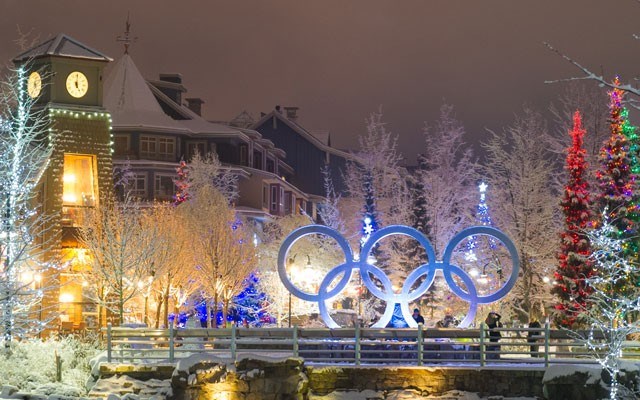It's hard to believe that it's been five years since Whistler hosted the biggest event of its life — the Winter Olympic and Paralympic Games.
Thinking back on the Games it's hard not to feel pride — and not just because of the success of the athletes, but also for the organization of this mega event.
The sentiment seems particularly relevant with media outlets globally reporting on the challenges Russia is facing a year after hosting the $51-billion 2014 Winter Olympics in Sochi — the most expensive Games in Olympic history, even eclipsing the Summer Games in Beijing in 2008.
Whistler and Vancouver's Games came in at $4 billion, plus another $4 billion in associated costs such as the new Canada Line, the Sea to Sky Highway upgrades, the upgrades to the Vancouver Convention Centre, and so on.
Of that $8 billion more than $6 billion was from governments or public agencies like TransLink and the airport authority. A 2002 report stated that for every $12 spent by Ottawa and B.C. on the three big projects, local taxpayers contributed only $1 — that's a pretty good deal on the surface, but there is only one overall taxpayer at the end of the day — and that's us.
In Sochi, taxpayers look to be on the hook for billions and billions of dollars.
The next Winter Games are both set to be held in Asia with Korea hosting in 2018 and 2022's Games looking set to be held in China — though a bid is still on the table from Almaty, Kazakhstan. Realistically China's bid is out front.
The choice for 2022 is between two authoritarian nations who capture more headlines with their violations of human rights than their winter athletic prowess. The decision will be made July 31 in Kuala Lumpur.
These bids follow on changes announced by the International Olympic Committee (IOC) to make hosting the Games more affordable and to consider human rights more directly. No doubt Olympic officials will have their work cut out for them with these Games.
Chinese officials have announced plans to reuse some of the $40-billion 2008 Olympic venues, which they say will keep costs down to $3.9 billion. Planners have already started building a high-speed rail link to Zhangjiakou, a city near where the Olympic Village would be built, that will reduce travel time from central Beijing to 50 minutes from three and a half hours by car.
And organizers promise,"... our ecological environment (will be) as clean as possible, and we shall create a social and cultural environment for pure friendship," according to the Beijing Olympic Games Bid Committee website.
This despite a report in the New York Times which states: "According to China's Ministry of Environmental Protection, nearly 90 percent of the country's 74 major cities, including Beijing, failed to meet air quality standards last year. While the government took extreme measures to clear skies during the 2008 Olympics, shutting down factories and limiting the number of cars on the roads, the smog problem has only grown worse."
For years there have been debates about the value of these multi-billion dollar Games — imagine the poverty, health issues and lack of education that money could help tackle.
And part of that debate has been around allowing past venues to re-host Games. Perhaps it is time to seriously consider that proposition?
After all most of those originally vying to host the 2022 Games pulled out after the public refused to support the bids over concerns of cost (Munich, Germany; St. Moritz-Davos, Switzerland; Stockholm, Sweden; Krakow, Poland; Lviv, Ukraine; and Oslo, Norway).
Today, in Whistler our Olympic spirit is visible almost every weekend at the Whistler Olympic Plaza — it is apparent in the constant line-up by visitors, and even the occasional resident, to have their pictures taken with the Olympic rings.
And there is no denying the value of the other great legacies for Whistler including the Cheakamus Crossing neighbourhood, and the ongoing arrangement with the province for Resort Municipality Initiative funding, the amazing Nordic Centre at the Callaghan, the highway upgrades and even the Whistler Sliding Centre. All have added to the resort's success.
The 2010 Games weren't perfect — but Canada, B.C., Vancouver and Whistler can stand proud as we reflect on how we hosted the Games. They were inclusive, celebratory, successful and for the most part on budget.
But the greatest legacy was a human one. Perhaps 2010 Games boss John Furlong said it best last week.
"It touched every life," he said. "I walk around the city, and you can still feel it."
For the next five weeks Pique will be celebrating our Olympics with a look at the event, and a look at its lasting impact. Find the first part on page 32.




